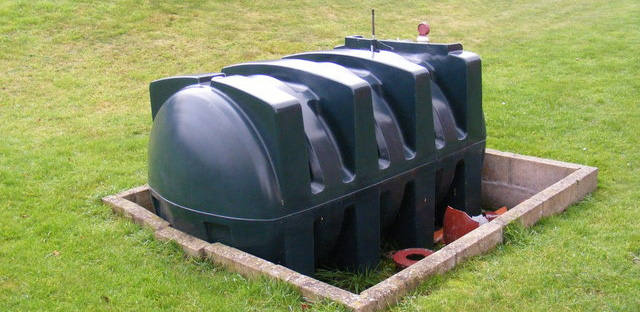Checking oil tanks
[edit] Introduction
When relying on an oil tank for the main source of central heating, it is crucial that it is checked regularly for leaks, corrosion and other signs of delay. Once an oil tank has started to deteriorate, repairs should be made as soon as possible before serious damage is done.
Although oil tanks are built to withstand normal weathering, there are a number of issues to look out for to ensure they remain in good condition, to ensure longevity and to avoid environmental spills from leaks.
This article describes some of the more common occurrences that can be recognised by sight, how these might affect the oil tank and what should be done to resolve these issues.
[edit] Signs of problems
Rust is fairly easy to identify as it shows on the tank exterior and can be flaky or cause blistering of paint. A rusting oil tank can be dangerous as the rust will worsen over time, potentially leading to environmental spills and also perhaps polluting the oil itself, making it less efficient. Rust is only present in metal tanks, however those with plastic oil tanks must check the plastic for any whitening, cracking or splits or any bulging in the tank profile as this can be equally as dangerous.
Leaking joints Cleaning up a leak of heating fuel from a domestic storage tank can be very expensive, so checking for leaking joints is essential. A key sign of an oil leak or a leaking joint is that oil usage suddenly increases unexpectedly. It is important to check the tank and pipework as soon as this is noticed, or purchase a tank monitoring device that can give an early warning of a rapid drop in oil level.
Water or sludge in the tank
Tanks containing water or sludge can clog the pipework and damage or even corrode heating systems, which reduces the oil efficiency and ultimately makes your heating cost more. You can find out whether or not your tank has water or sludge in it by looking for a ‘darkened’ area at the bottom of the tank, or by using water-finding paste which needs to be attached to a long stick and then placed into a tank. The colour of the paste will determine whether or not water is present.
[edit] Solutions
Conducting regular checks will help to reduce the risk of a large repair bill if something is wrong. In addition, an annual check-up by a qualified professional will provide more detail on condition and maintenance requirements.
If you are not entirely sure as to the condition of your oil tank, or if you see something suspicious that you want to know more about, seek advice from a licensed professional.
Featured articles and news
A case study and a warning to would-be developers
Creating four dwellings... after half a century of doing this job, why, oh why, is it so difficult?
Reform of the fire engineering profession
Fire Engineers Advisory Panel: Authoritative Statement, reactions and next steps.
Restoration and renewal of the Palace of Westminster
A complex project of cultural significance from full decant to EMI, opportunities and a potential a way forward.
Apprenticeships and the responsibility we share
Perspectives from the CIOB President as National Apprentice Week comes to a close.
The first line of defence against rain, wind and snow.
Building Safety recap January, 2026
What we missed at the end of last year, and at the start of this...
National Apprenticeship Week 2026, 9-15 Feb
Shining a light on the positive impacts for businesses, their apprentices and the wider economy alike.
Applications and benefits of acoustic flooring
From commercial to retail.
From solid to sprung and ribbed to raised.
Strengthening industry collaboration in Hong Kong
Hong Kong Institute of Construction and The Chartered Institute of Building sign Memorandum of Understanding.
A detailed description from the experts at Cornish Lime.
IHBC planning for growth with corporate plan development
Grow with the Institute by volunteering and CP25 consultation.
Connecting ambition and action for designers and specifiers.
Electrical skills gap deepens as apprenticeship starts fall despite surging demand says ECA.
Built environment bodies deepen joint action on EDI
B.E.Inclusive initiative agree next phase of joint equity, diversity and inclusion (EDI) action plan.
Recognising culture as key to sustainable economic growth
Creative UK Provocation paper: Culture as Growth Infrastructure.






















